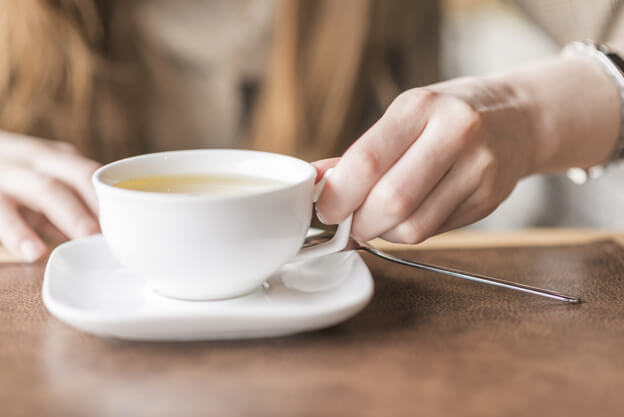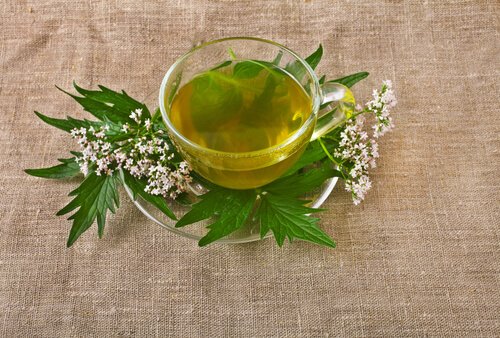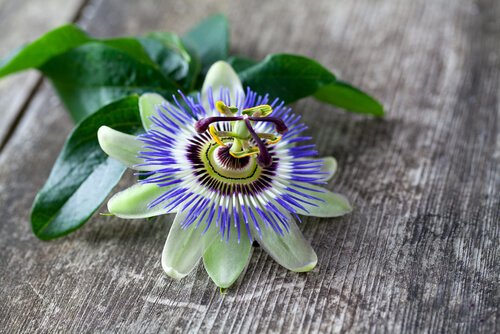Four Brews for Better Sleep

Resting properly is really important for our physical and mental health. Getting six to nine hours of deep sleep a day has a fundamental impact on all aspects of our lives.
In this day and age, there are lots of people who find they have trouble resting correctly. As a remedy, they try various infusions which help people get better sleep – or claim to do so.
In some cases, these ancestral remedies help you fall asleep earlier and get better rest. In this article, we’ll talk about the most effective ones.
Why drink infusions to sleep better?
Humans have used natural remedies since forever. These are plants and herb-based formulas that help with various bodily functions without (or with very few) side effects. For this reason, many people opt to simply use infusions to sleep better. And even more so considering the possible dangers of pharmaceutical treatments for insomnia.

It’s important to note, however, that many factors can cause insomnia. Because of this, it’s necessary to attack the problem from different angles. And one of those angles is using infusions to get better sleep.
Factors like regular exercise, healthy eating, and avoiding illuminated screens at least one hour before going to bed are fundamental for improving the quality of sleep. However, if you’ve already made all those changes and still have problems relaxing, infusions can give you the final push you need to sleep better. In this article, we’ll look at some of the most important ones:
- Chamomile
- Valerian root
- Linden
- Passion flower
1 – Chamomile
Chamomile is one of the natural infusions with the most benefits. It’s been used since ancient times to treat all sorts of problems, amongst them insomnia.
Due to its special properties, this herb helps fight stress, anxiety, and depression. These three emotional problems often arise as the principal causes of lack of sleep. Thus, eliminating them helps improve the quality of sleep in most cases.
On the other hand, taking chamomile in any of its forms (in a tea, chewing the leaves, or as an extract) directly influences your capacity to fall asleep quickly. Because of this, this herb is one of the best infusions for falling sleep.
2 – Valerian root
Valerian root is another plant with sedative power. Due to this property, its consumption is one of the first natural treatments recommended to people with problems like stress, anxiety, or insomnia.
Unlike other remedies for improving sleep, valerian root doesn’t induce the feeling of exhaustion. Because of this, it’s one of the safest infusions to take for better sleep. It’s risk-free, including for children and the elderly.

3 – Linden
Linden is one of the most well-known plants for all-around therapeutic use. Used primarily as a remedy to calm the nerves, this infusion has powerful relaxant properties that help you fall asleep.
But beyond its benefits in the fight against insomnia, linden also helps with a variety of physical and mental problems. From glowing skin and healthy hair to getting rid of headaches and stomach aches, it’s one of the plants with the most positive effects on the whole body. We recommend it for this reason.
4 – Passion flower
Passion flower might not be as well known as the other three infusions for better sleep, but its properties are beneficial and effective. This plant is widely used to treat problems like anxiety, hypertension, and, of course, trouble falling asleep.

However, the main difference between this natural infusion and the others is that there are contraindications in some cases. For example, pregnant or lactating women, as well as people taking pharmaceutical treatments for anxiety, should avoid using it due to its powerful effects.
The moment has come for you to try these infusions to improve your sleep. It will be up to you to decide which you prefer in terms of function, flavor, and effectiveness. And if you already use them, we’d be delighted to read your experiences in the comments.
This text is provided for informational purposes only and does not replace consultation with a professional. If in doubt, consult your specialist.








